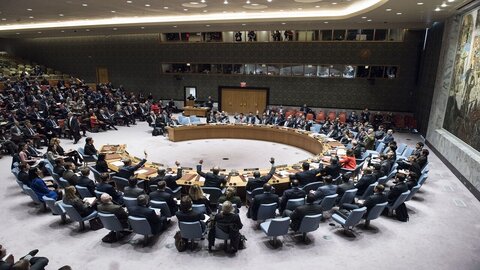Iran This development, which took effect on October 18, marks a significant milestone following the 2015 Iran nuclear deal, also known as the Joint Comprehensive Plan of Action (JCPOA). The restrictions that have now been lifted encompassed various aspects, including curbs on activities related to ballistic missiles and their transfers, as well as sanctions imposed on specific Iranian individuals and entities.
Rosemary A. DiCarlo, the United Nations Under-Secretary-General for Political and Peacebuilding Affairs, further corroborated the termination in a separate letter addressed to Iran's permanent ambassador to the United Nations, Amir Saeid Iravani.
DiCarlo stated, "As a consequence, the Secretariat removed on 19 October 2023 from the Security Council website the list of 23 individuals and 61 entities subject to the aforementioned restrictive measures." These changes were also reflected in the UNSC Consolidated List, which includes all sanctioned individuals and entities.
This decision by the UNSC carries significant implications for Iran's missile program, signaling an important shift in international relations and potentially paving the way for new opportunities in the future.
Iran's termination of the United Nations (UN) sanctions has come into effect, marking a significant development despite the extensive efforts made by the United States and Western countries to maintain these measures. The termination means that Iran is no longer bound by any UN sanctions. In response to this, the United States has imposed new unilateral sanctions on Iran's missile program.
Furthermore, the three European signatories to the Joint Comprehensive Plan of Action (JCPOA) - the UK, Germany, and France - have declared their intention to continue their anti-Iran sanctions, including the ban on ballistic missiles. They argue that Iran has been in non-compliance with the JCPOA since 2019.
Iran initially halted some of its commitments under the JCPOA in 2019, one year after the US unilaterally withdrew from the agreement. This decision was made following the failure of the European Union to provide any compensation for the US withdrawal. Iran justified its reduction of commitments by citing the provisions within the JCPOA that allow parties to deviate from their obligations if other parties fail to fulfill theirs.


Your Comment